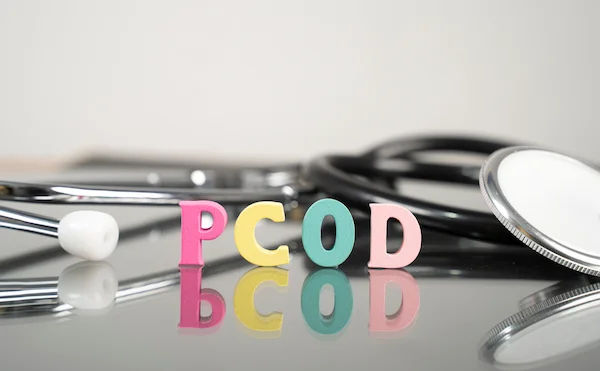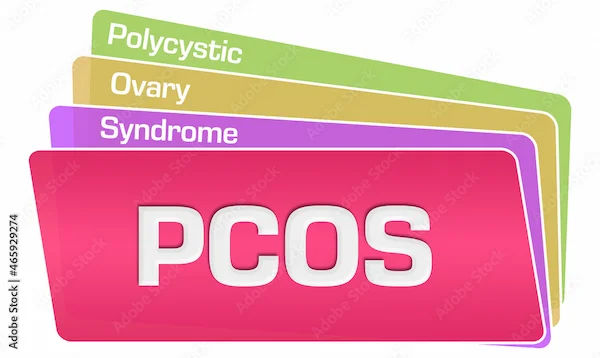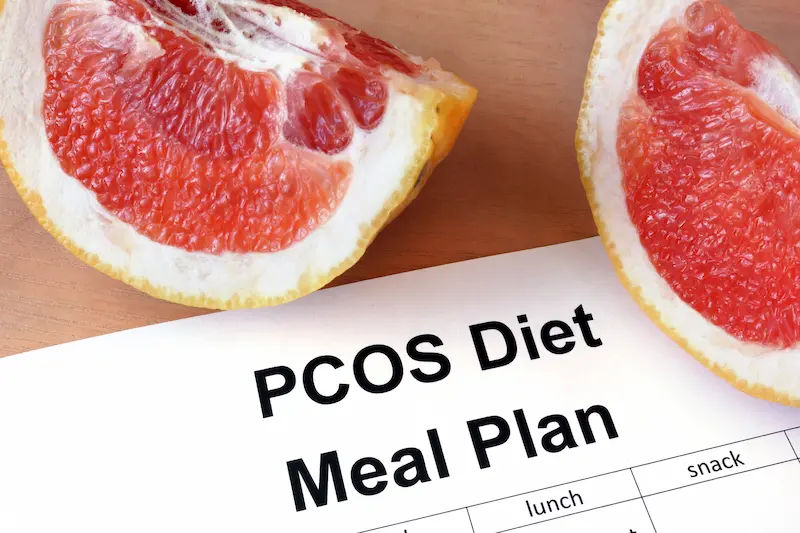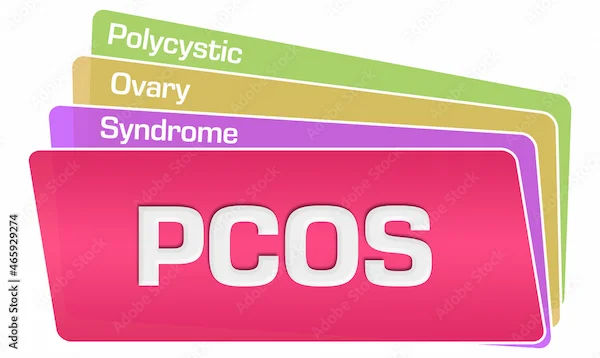PCOS and PCOD Differences Explained
Know about the pcos and pcod, key differences between them, causes, symptoms, how they affect your health and lifestyle tips for pcos & pcod.

Written by Dr. Vasanthasree Nair
Reviewed by Dr. Shaik Abdul Kalam MD (Physician)
Last updated on 13th Jan, 2026
.webp?tr=q-80,f-webp,w-350,dpr-2,c-at_max 700w)
Introduction
Polycystic Ovary Syndrome (PCOS) and Polycystic Ovary Disease (PCOD) are two common hormonal disorders that affect women, particularly during their reproductive years. While they sound similar and share some symptoms, they are not the same. Understanding the differences can help you manage your health better.
In this article, we’ll break down what PCOS and PCOD are, key differences between them, the symptoms, the causes, the health risks, lifestyle and dietary tips for management and when to seek medical help
What Are PCOS and PCOD?
PCOD (Polycystic Ovary Disease)
PCOD is a condition where the ovaries produce immature or partially mature eggs, which may turn into cysts over time. This leads to hormonal imbalances, irregular periods, and other symptoms. However, PCOD is generally considered less severe than PCOS and can often be managed with lifestyle changes.
PCOS (Polycystic Ovary Syndrome)
PCOS is a more serious metabolic disorder where hormonal imbalances affect the ovaries, leading to irregular periods, excess male hormones (androgens), and insulin resistance. It can have long-term health implications, including diabetes, heart disease, and infertility, if not managed properly.
Consult a Gynaecologist for Personalised Advice
Key Differences Between PCOS and PCOD
| Aspect | PCOD | PCOS |
| Definition | Ovaries release immature eggs, forming cysts | A metabolic disorder with hormonal imbalance and insulin resistance |
| Severity | Less severe, manageable with lifestyle changes. | More severe, require medical intervention |
| Fertility Impact | May cause mild fertility issues, but can still conceive naturally. | Higher risk of infertility; may need medical help for conception. |
| Hormonal Levels | Mild hormonal imbalance | Significant increase in androgens (male hormones) |
| Health Risks | Mostly affects menstrual cycles | Increases risk of diabetes, heart disease, and endometrial cancer |
Common Symptoms of PCOS and PCOD
Both conditions share some symptoms, but PCOS tends to be more severe:
Irregular or missed periods, Heavy or painful periods
Excess facial or body hair (hirsutism)
Acne and oily skin
Weight gain (especially around the waist)
Hair thinning or male-pattern baldness
Dark patches on skin (acanthosis nigricans)
Difficulty getting pregnant
What Causes PCOS and PCOD?
The exact cause is unknown, but several factors contribute:
1. Hormonal Imbalance
High levels of androgens (male hormones) interfere with egg development and ovulation.
2. Insulin Resistance
Many women with PCOS have insulin resistance, leading to higher blood sugar levels and weight gain.
3. Genetics
A family history of PCOS or PCOD increases the risk.
4. Inflammation
Chronic low-grade inflammation may trigger higher androgen production.
How PCOS and PCOD Affect Your Health?
If left untreated, these conditions can lead to:
Infertility – Irregular ovulation makes conception difficult.
Type 2 Diabetes – Insulin resistance increases diabetes risk.
Heart Disease – High cholesterol and blood pressure raise cardiovascular risks.
Endometrial Cancer – Irregular periods can cause thickening of the uterine lining.
Depression & Anxiety – Hormonal changes and body image issues affect mental health.
Lifestyle & Dietary Tips for Managing PCOS/PCOD
While medical treatment may be necessary, lifestyle changes play a crucial role in managing symptoms:
1. Eat a Balanced Diet
High-fibre foods – Vegetables, whole grains, legumes.
Lean proteins – Chicken, fish, tofu.
Healthy fats – Nuts, seeds, olive oil.
Avoid – Sugary foods, processed carbs, fried foods.
2. Exercise Regularly
30 minutes of daily activity – Walking, yoga, strength training.
Helps with weight loss and insulin sensitivity.
3. Manage Stress
Meditation, deep breathing, and adequate sleep help balance hormones.
4. Monitor Blood Sugar Levels
If you have insulin resistance, a low-glycemic diet helps.
5. Stay Hydrated
Drinking enough water supports metabolism and hormone regulation.
When to See a Doctor?
If you experience:
Irregular or absent periods for months
Severe acne or excessive hair growth
Unexplained weight gain
Difficulty getting pregnant
Consult a gynaecologist or endocrinologist for proper diagnosis and treatment.
Final Thoughts
PCOS and PCOD may seem similar, but they differ in severity and long-term effects. Early diagnosis and lifestyle changes can help manage symptoms effectively. If you suspect any hormonal imbalance, don’t hesitate to seek medical advice.
Consult a Gynaecologist for Personalised Advice
Consult a Gynaecologist for Personalised Advice

Dr. Sreeparna Roy
Obstetrician and Gynaecologist
8 Years • MBBS , MS (OBSTETRICS & GYNAECOLOGY), Fellowship in Infertility, Endoscopy & Ultrasonography), Fellowship in Laparoscopy & Hysteroscopy,DRM
Barasat
Diab-Eat-Ease, Barasat

Dr. Rituparna De
Obstetrician and Gynaecologist
7 Years • MBBS, MS (Obstetrics & Gynaecology)
Kolkata
MCR SUPER SPECIALITY POLY CLINIC & PATHOLOGY, Kolkata

Dr. Saheli Kapat
Obstetrician and Gynaecologist
11 Years • MBBS, DNB Obstetrics & Gynaecology,FMAS(Fellowship in Minimal access surgery)
Kolkata
MCR SUPER SPECIALITY POLY CLINIC & PATHOLOGY, Kolkata

Dr. Mehnaz Rashid
Obstetrician and Gynaecologist
7 Years • MBBS, DNB (Obstetrics & Gynaecology), D.MAS, F.MAS, WALS
Bengaluru
Wellstar Polyclinic and Diagnostic Center, Bengaluru
(275+ Patients)
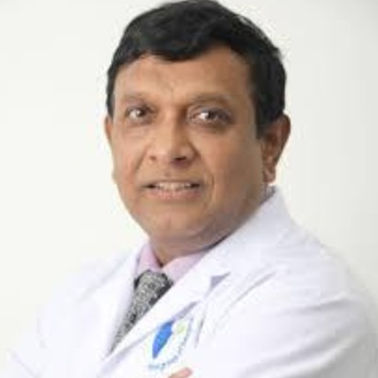
Dr. Sanjan Das
Obstetrician and Gynaecologist
15 Years • MBBS,MS
Bengaluru
Apollo Clinic, Sarjapur Road, Bengaluru
